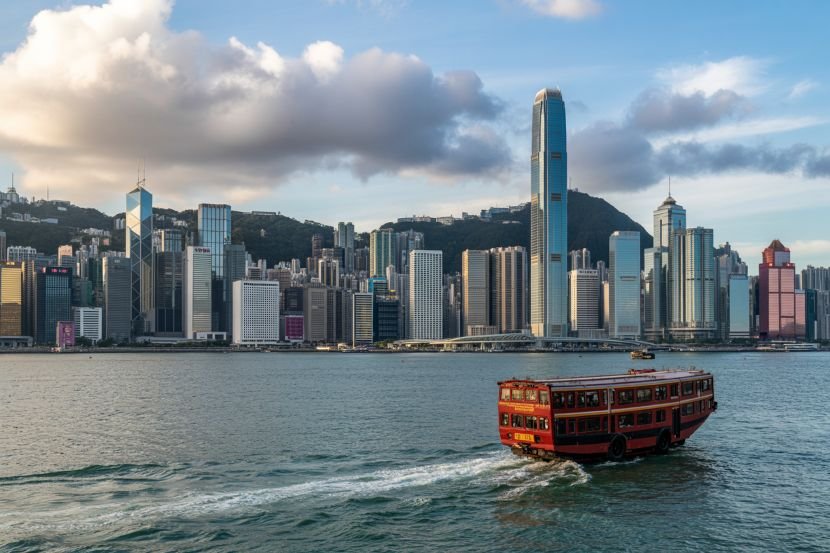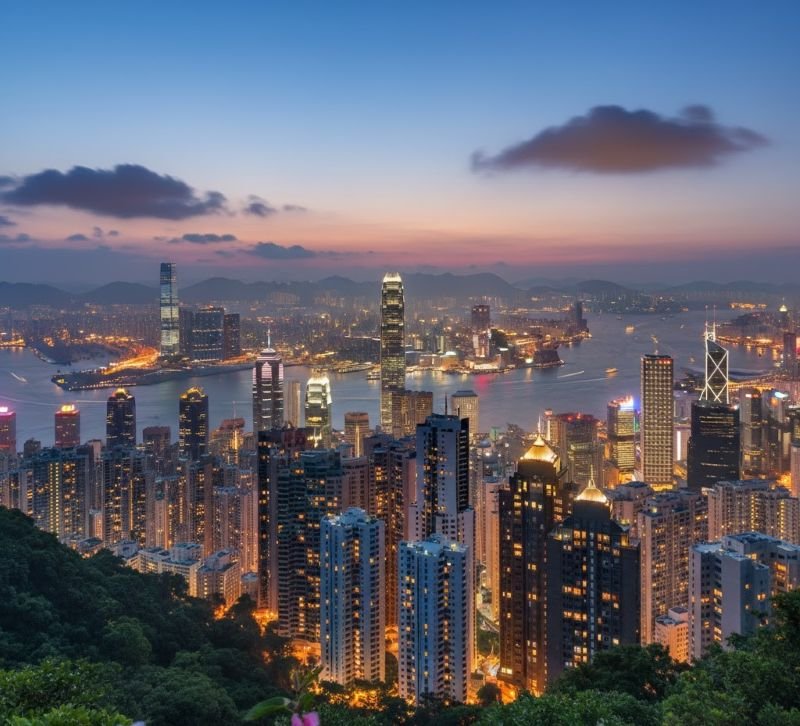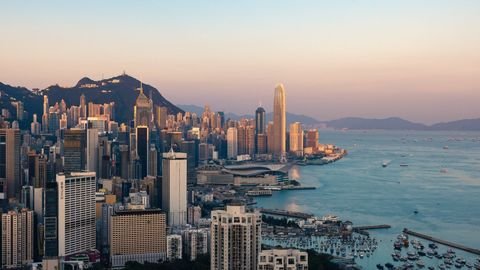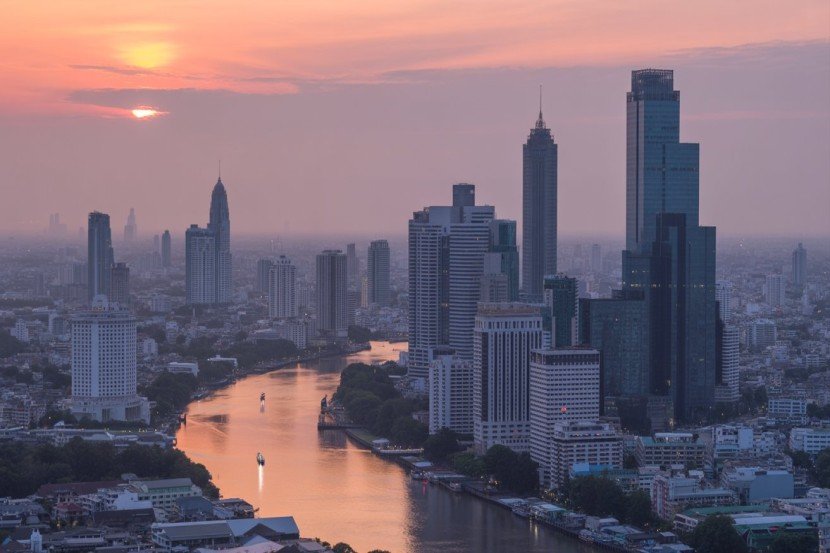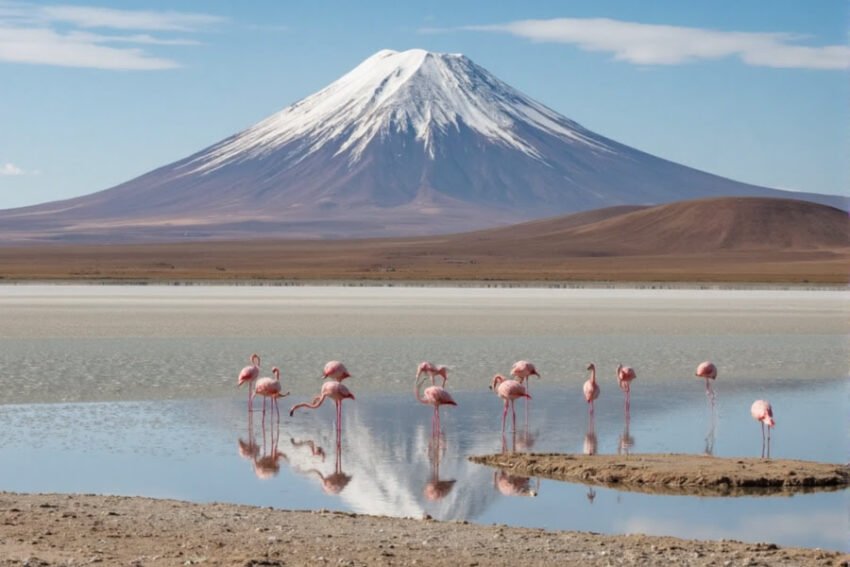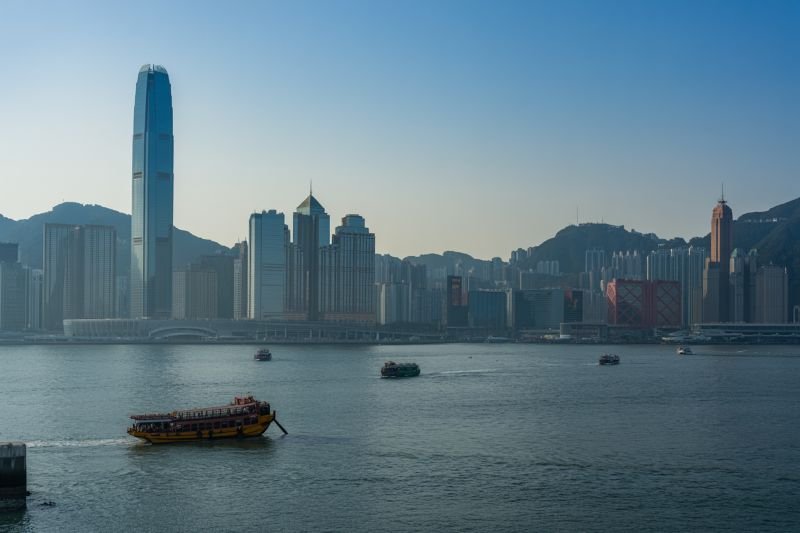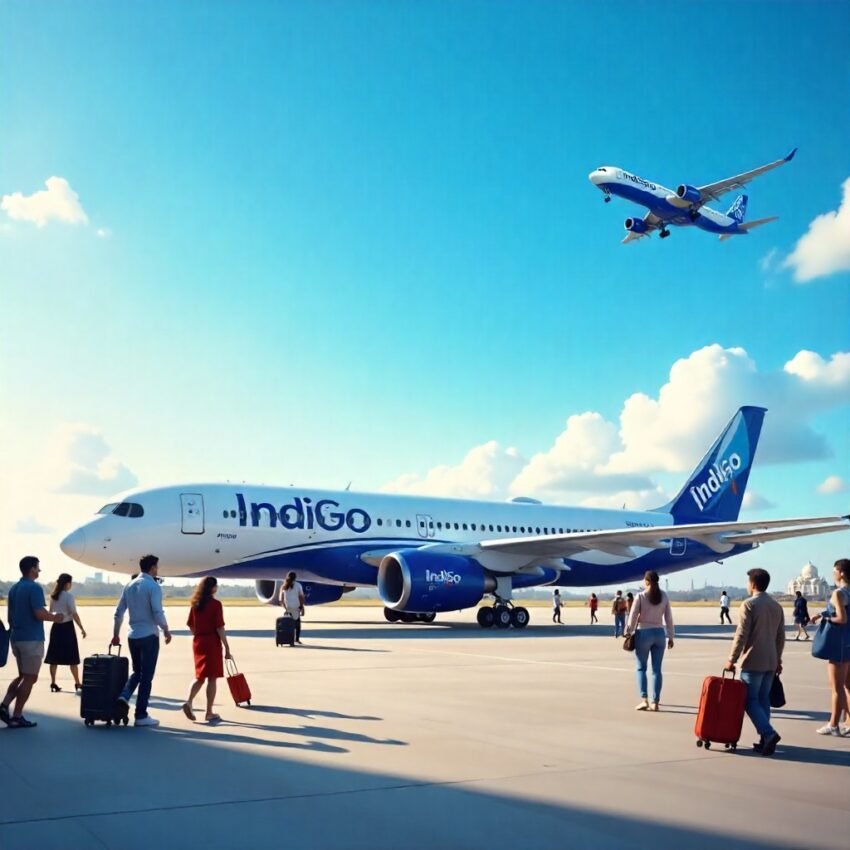Shanghai residents Oneone Han and Pipi Tang arrived in Hong Kong before dawn — they were on a mission.
Skipping a hotel, they showered at the airport and at 6am started ploughing through a packed travel itinerary that saw them hitting famous sightseeing locales until late into the night.
They had a tight schedule and budget for their two-day visit to Hong Kong during China’s Golden Week holiday in May, and they were going to make every moment count.
In 48 hours, they visited 14 destinations and spent the equivalent of only about $360.
They are part of the growing trend among China’s Gen Z tourists that’s become known as “special forces” travel.
Inspired by efficiency, endurance, and intensity of military units, their aim is to pack as many attractions as possible into short, cheap trips.
Oneone Han is one of the many “special forces”-style tourists looking for cheap and quick trips in or close to mainland China. (Supplied: Oneone Han)
It’s helping Ms Han and Mr Tang chase their dream of visiting every Chinese province by 2026.
“There are only four provinces left,” Ms Han said.
“We feel fulfilled to visit many places in a short time while saving money.”
Mr Tang said they planned their trips carefully.
“China’s well-developed rail network, especially high-speed trains, makes it possible for us to do quick visits to different cities,” he said.
Pipi Tang said he and Oneone Han planned their trips carefully. (Supplied: Pipi Tang)
When travelling at more expensive times, or to popular places with high accommodation costs, Mr Tang said they would often take sleeper trains.
“So it covers a night’s accommodation, and we don’t waste any of our daytime for activities,” he said.
Tips shared on social media
Special forces-style travel has been spreading on Chinese social media platforms like RedNote and Douyin, where users share tightly packed itineraries, travel tips, and budget hacks.
Posts often include detailed guides with transport routes, photo spots and suggestions on meals and essentials to bring.
Chinese tourists share itineraries and travel tips on RedNote. (Supplied: RedNote)
Mingming Cheng, director of the Social Media Research Lab at Curtin University, said the trend reflected wider social pressures among young Chinese.
Dr Cheng said many young professionals had limited budgets and time, but they still wanted to experience as much as possible.
“There’s what we call ‘time anxieties,'” he said.
“Particularly after COVID-19, people start having the idea that if I don’t experience [things] now, I will be regretful for the future.”
Sleeping in McDonald’s
On social media, special forces travellers have recommended some extreme strategies to save money, including sleeping in 24-hour McDonald’s restaurants, hot pot restaurant chain Haidilao, or internet cafes.
In May, photos posted to social media platform Threads showing groups of Chinese tourists sleeping overnight at a McDonald’s in Hong Kong went viral.
Some Hong Kong residents criticised the practice as “degrading” and said such “budget travellers” failed to boost the economy.
Others called for McDonald’s to end its 24-hour operations.
Chinese tourist Chloe Cai told the ABC she managed to spend only $106 during a three-day visit to Hong Kong in May, partly by staying in a McDonald’s one night.
“Special forces”-style tourists sleep in a McDonald’s outlet to save on accommodation costs. (ABC News: Supplied)
“The hotels in Hong Kong were too expensive during the holiday,” she said.
“I decided to stay one night in McDonald’s and another day staying in a cheap hotel that cost $46 a night.”
Ms Cai said she felt unsafe and couldn’t sleep at all during the night she spent at McDonald’s.
“I won’t do it again. Next time I’ll go on a day trip to Hong Kong,” she said.
Ms Cai also opted for convenience store food instead of restaurants and only visited free sites including Victoria Harbour and The Peak, which overlooks Hong Kong.
To get around, she mostly walked, racking up more than 25,000 steps a day.
Tourism up but sales down
According to the Hong Kong Tourism Board, 25.5 million mainlanders visited between January and August 2025 — an 11 per cent rise compared to the same period in 2024.
Mimi Li said “special forces”-travel adds little revenue but may benefit tourism in the long-term. (Supplied: Mimi Li)
But despite the significant rise in tourists, Hong Kong’s retail sales declined slightly.
Data from the Hong Kong Census and Statistics Department shows total retail sales for the first eight months of 2025 reached HK$245.1 billion ($48.81 billion), down 1.9 per cent from the previous year.
Mimi Li, tourism professor at Hong Kong Polytechnic University, said the special forces-type of travel had both positive and negative impacts on Hong Kong’s tourism industry.
She said while budget travellers increased the number of arrivals, they created problems of over-tourism and overcrowding.
“The spending per traveller has dropped sharply compared to previous years,” she said.
“Many tourists no longer stay overnight, dine in local restaurants, or shop in Hong Kong, contributing only minimal revenue to the economy.”
However, Dr Li said Hong Kong could cultivate a profitable market for the future.
She said young people who enjoy visiting Hong Kong might bring long-term benefits if they return later with increased spending power.
Hong Kong chief executive John Lee addressed the issue earlier this year.
“We must look at tourism as a whole, so that every tourist will find their experience in Hong Kong is an enjoyable and welcome one,” he said.
Adapting to new travel habits
Dr Li said Chinese tourists’ travel habits were shifting.
Rather than planning trips or focusing on shopping and high-end experiences, many now travelled spontaneously and prioritised authentic, local experiences.
She said destinations should adapt by offering flexible services and experiences, such as self-guided itineraries to lesser-known neighbourhoods, local markets, or hidden cultural spots, rather than only promoting iconic landmarks.
Some areas are adapting with officials looking at how to better design itineraries and travel experiences that appeal to young Chinese tourists.
The Hong Kong government has announced plans to promote visits to the facilities of popular local manufacturers and food brands, expand mountain eco-tours, and develop new cultural travel experiences.

